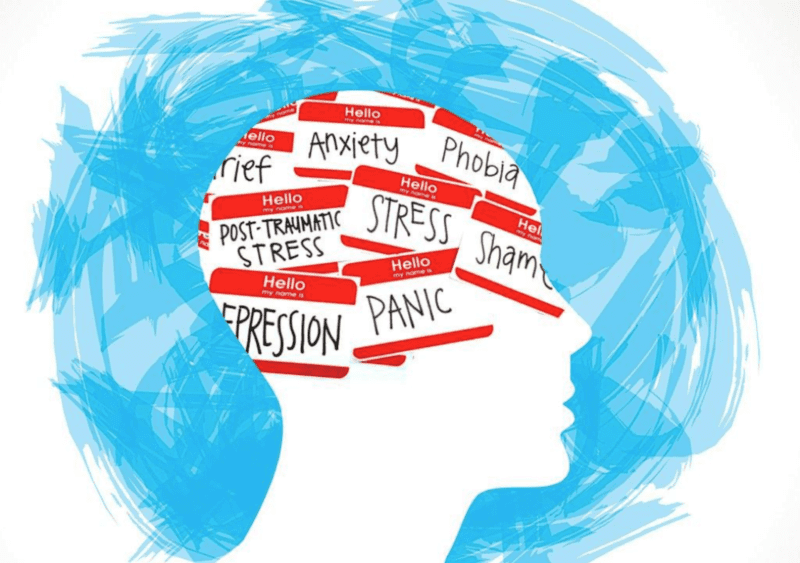Global Issues
African Parents and their Disposition Towards Mental Health -By Abigael Adewale-King
“Just as you can help prevent a child from falling sick, you can help prevent a child from having mental health problems.” “Mental fitness includes our emotional, psychological, and social well-being. It helps to establish how we cope with stress and adversity, handle success, connect to others and make choices.”

WHAT IS MENTAL HEALTH?: Mental health can be defined as a state of psychological and emotional well-being. It includes how we think, feel, and behave, and encompasses all aspects of our life, from our relationships with others to our ability to cope with stress and challenges. Good mental health allows us to function well in our daily lives, while poor mental health can lead to difficulties in managing our emotions, behaviors, and relationships. Mental health problems can range from mild disorders like anxiety and depression to more severe conditions like schizophrenia or bipolar disorder. It’s important to take care of our mental health as it’s an essential part of our overall well-being.
WHAT DO AFRICAN PARENTS THINK ABOUT MENTAL HEALTH? Most Africans view mental disturbances as the result of an external attack on the person. Those who are suffering from mental illness are thought to be under a spell or bewitched. People talk about evil spirits when describing the condition of a mentally ill person.
In some African societies, mental illness is not always understood, and traditional beliefs may hold that it is caused by supernatural or spiritual forces. Consequently, some African parents may stigmatize mental illness and believe that it is a sign of weakness, lack of faith, or moral failing. They may feel ashamed or embarrassed to share their experiences with others or seek professional help. It is crucial to emphasize that mental health is an essential component of overall health and wellbeing, and addressing any challenges related to mental health requires open communication, empathy, and support.
Parents fail to pay attention to the constant changes and signs of depression, anxiety, addiction, PTSD, and phobias in their children. They’ve completely shut mental health out and only pay attention to physical well being, forgetting that when a person is not okay upstairs, it is difficult for them to function in their day to day life or even feel motivated at all.
An example of a very popularly overlooked mental illness is depression and anxiety. African parents will rather call you lazy and spoilt than try to find out why their child has been isolating themselves, eating less, talking less, losing weight, feeling unmotivated, feeling suicidal, e.t.c.
The first thing that comes out of an African parent’s mouth after you mention depression to them is “may God not let you see depression” or “let’s go to church.” To them, depression is a myth! It doesn’t exist. They fail to pay attention to the dangers of undiagnosed and uncured mental illnesses, unhealthy coping mechanisms, the dangers they pose to that child as a human being. So many children have refused to speak up about trauma, or mental illnesses because they are almost sure of the ignorant reply they would get. Some children have had to seek therapy on their own and resort to sharing their problems with strangers who are willing the help them professionally without the assistance or involvement of their parent, and that is already bad enough.
According to statistics, Around 11 people per 100,000 per year die by suicide in the African region, higher than the global average of nine per 100 000 people. This, I reckon is as a result of the lack of interest in mental health and well-being. It is really saddening to see how many youths we lose yearly to undiagnosed mental illnesses or improperly managed conditions which could have been avoided if their parents payed more attention or devices a calmer approach. It shouldn’t be so.
Owolabi, a Resident Doctor at Ladoke Akintola University of Technology Teaching Hospital (LAUTECH) Ogbomoso, gave the advice in an interview with the News Agency of Nigeria (NAN).
According to him, mental health of a child is as important as physical health, as it determines how a child behaves and acts throughout the journey of life.
“Just as you can help prevent a child from falling sick, you can help prevent a child from having mental health problems.” “Mental fitness includes our emotional, psychological, and social well-being. It helps to establish how we cope with stress and adversity, handle success, connect to others and make choices.”
“Right from childhood, through adolescence and throughout adulthood, mental health is crucial,’’ he said.”
According to him, promoting a child’s mental health means helping a child feel secured, loved, to relate well with others and foster his growth at home and at school.
As parents, you have the responsibility to build the foundation of our children’s mental health to ensure they become mentally-healthy adults.
In conclusion, Of course the child might not have been born with an existing mental illness, but they might have developed along the line, children might have experienced certain trauma that they might not yet feel comfortable sharing, or there was a fault in their upbringing; probably they had emotionally unavailable parents, narcissistic parents, or their emotions were always overlooked whilst growing up. But as a parent, it is your duty to stand up and show care and concern, do whatever it takes to make sure your ward is physically and mentally sound.
_Abigael Adewale-King.
Lagos state university.

















